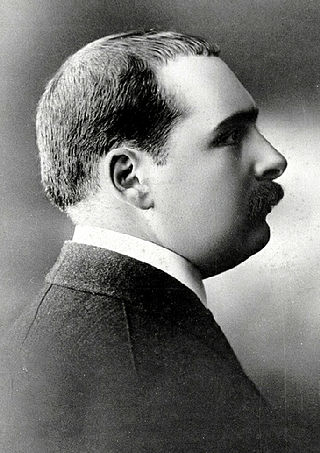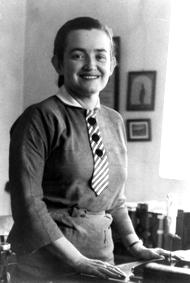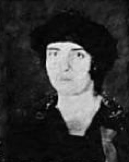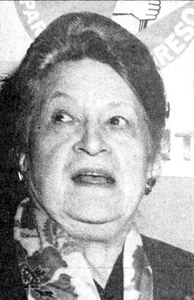
Suffrage, political franchise, or simply franchise is the right to vote in public, political elections and referendums. In some languages, and occasionally in English, the right to vote is called active suffrage, as distinct from passive suffrage, which is the right to stand for election. The combination of active and passive suffrage is sometimes called full suffrage.

Víctor Raúl Haya de la Torre was a Peruvian politician, philosopher, and author who founded the American Popular Revolutionary Alliance (APRA) political movement, the oldest currently existing political party in Peru by the name of the Peruvian Aprista Party (PAP).
Women's suffrage is the right of women to vote in elections. At the beginning of the 18th century, some people sought to change voting laws to allow women to vote. Liberal political parties would go on to grant women the right to vote, increasing the number of those parties' potential constituencies. National and international organizations formed to coordinate efforts towards women voting, especially the International Woman Suffrage Alliance.

José de la Riva-Agüero y Osma, 6th Marquess of Montealegre de Aulestia and 5th of Casa-Dávila was a Peruvian lawyer, historian, writer, essayist and politician who served as Prime Minister of Peru, Minister of Justice and Mayor of Lima. He was a leading member of the so-called Generation of 900, a conservative ideological movement of the early 20th century that also included other important member of Peruvian society, such as Víctor Andrés Belaúnde, Francisco García Calderón Rey, Óscar Miró Quesada de la Guerra and José Gálvez Barrenechea.

Clara Campoamor Rodríguez was a Spanish politician, lawyer and writer, considered by some the mother of the Spanish feminist movement. She was one of the main promoters for women's suffrage in Spain, included in the Spanish Constitution of 1931 in part owing to her advocacy.

Josefina Valencia Muñoz was a Colombian politician, and the first woman to be appointed governor of a Colombian department as Governor of Cauca, and the first woman to be appointed to a cabinet-level position as the 46th Minister of National Education of Colombia.

General elections were held in Costa Rica on 14 February 1932.

Cesar Acuña Peralta is a Peruvian politician and entrepreneur in the field of education. A controversial figure in Peruvian politics, he is the founder and leader of the Alliance for Progress party, which has achieved recognition for being the first party of provincial origin to gain electoral popularity at national level since its foundation in 2001.

María Jesús Alvarado Rivera was a Peruvian rebel feminist, educator, journalist, writer and social activist. She was noted by the National Council of Women of Peru in 1969 as the "first modern champion of women's rights in Peru".

Elena Torres Cuéllar was a leading Mexican revolutionary, feminist, progressive educator and writer. A member of the communist party, in 1917 she was the only woman to participate on behalf of the Liga Central de Resistencia at the first meeting of the Yucatán Socialist Party in Mérida. In 1919, she founded the Mexican Feminist Council campaigning for better social and economic conditions for women as well as the right to vote. She devoted considerable efforts to improving education in Mexico, especially by facilitating the training of primary school teachers in rural areas.

The Inter-American Commission of Women, abbreviated CIM, is an organization that falls within the Organization of American States. It was established in 1928 by the Sixth Pan-American Conference and is composed of one female representative from each Republic in the Union. In 1938, the CIM was made a permanent organization, with the goal of studying and addressing women's issues in the Americas.

María Currea Manrique was a Colombian feminist, suffragist, politician, nurse and journalist. She was instrumental in pressuring for laws in Colombia which recognized women's right to citizenship, education, and enfranchisement. She was honored as the 1960 "Women of the Americas" by the Organization of American States and received many awards and honors during her lifetime. She was posthumously honored with an award distributed bearing her name each March 8 in honor of International Women's Day to the Colombian woman who has excelled in promoting women's rights in her community.

Women's suffrage in the Spanish Second Republic period was the result of efforts dating back to the mid-1800s. Women and men working towards universal suffrage had to combat earlier feminist goals that prioritized social goals, including access to education, political rights such as a woman's right to vote and equal wages. As a middle class developed and women gained more access to education, they began to focus more on the issue of suffrage but this was often around specific ideological philosophies; it was not tied into a broader working class movement calling for women's emancipation.

Women in the Spanish Socialist Workers' Party were few in number, mainly as a result of the Spanish Socialist Workers' Party (PSOE)'s resistance to women's rights. The party had opposed the women's rights movement, seeing it as a bourgeois endeavor that interfered with their ability to work for labor rights. Despite warnings from prominent women about the problems related to this position, they re-affirmed it several times in the period prior to the Dictatorship of Primo de Rivera.
The struggle for women's right to vote in Mexico dates back to the nineteenth century, with the right being achieved in 1953.
Women's suffrage in Ecuador was introduced into the Constitution in 1929. Ecuador was the first country in South America to introduce women's suffrage.
Women's suffrage in Colombia was introduced in 1954. The reform was introduced during the military dictatorship of Gustavo Rojas Pinilla.
Evolución Femenina was a Peruvian women's rights organization founded in 1914. It was the first women's rights organisation in Peru.













